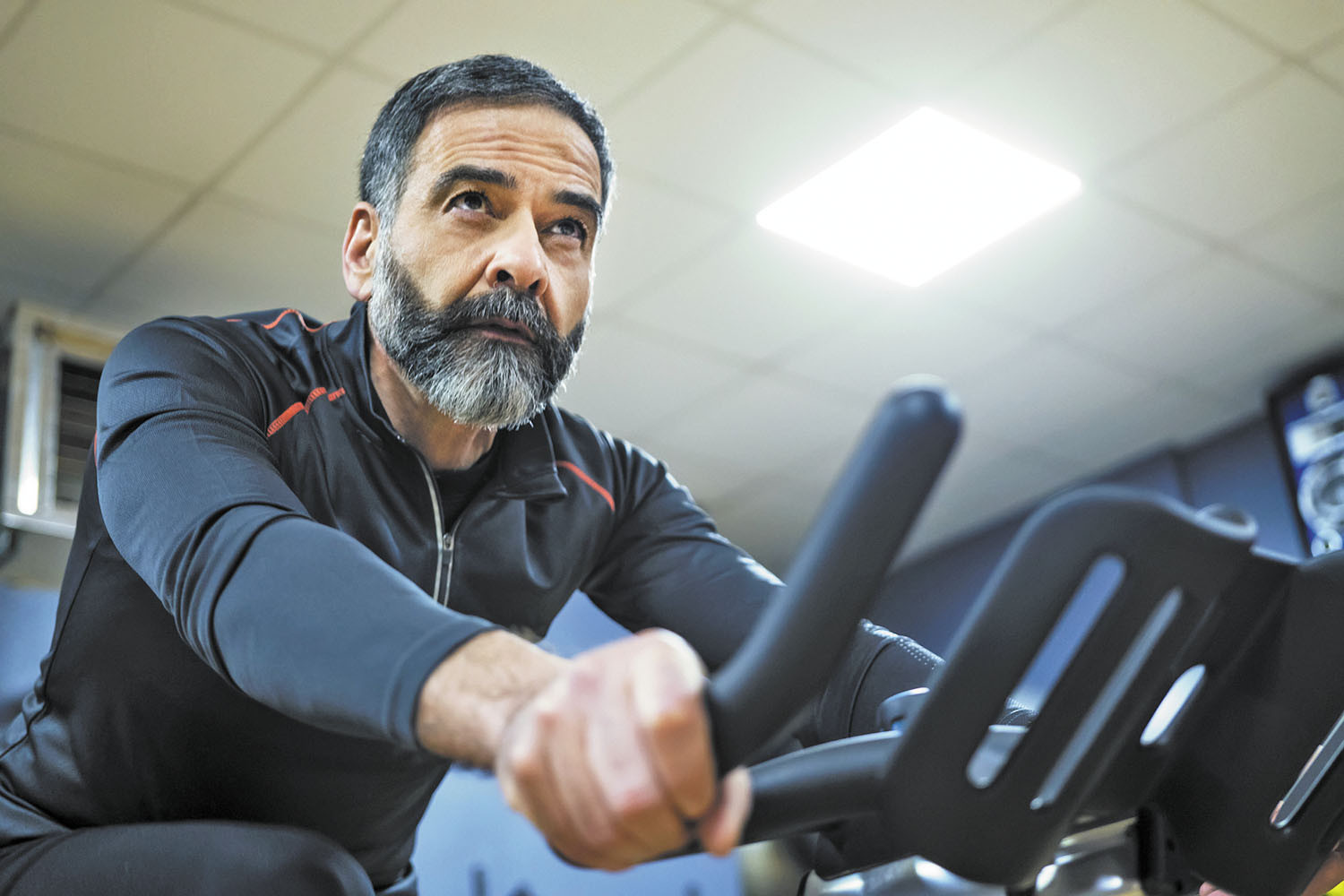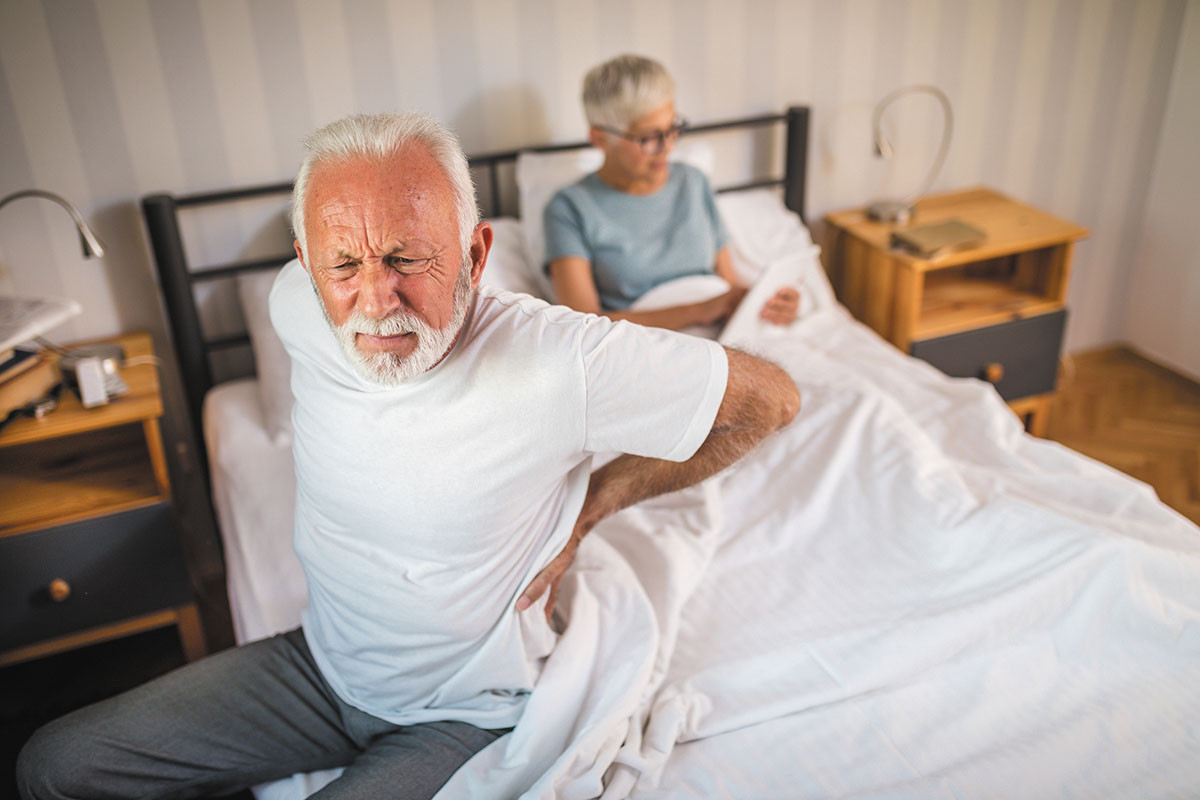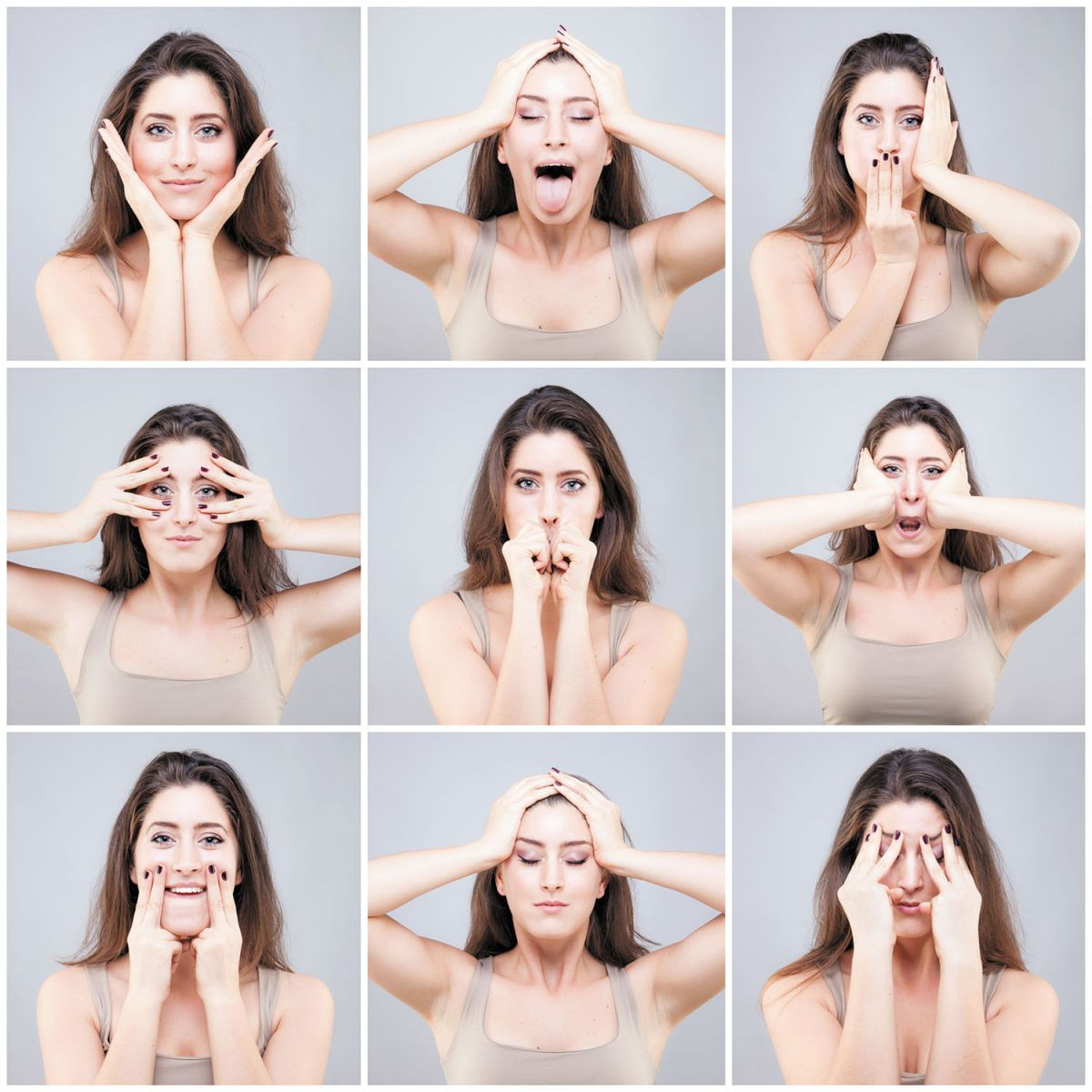
Counting steps is good — is combining steps and heart rate better?

Appendix pain: Could it be appendicitis?

Can saw palmetto treat an enlarged prostate?

How does Ozempic work? Understanding GLP-1s for diabetes, weight loss, and beyond

Zinc: What it does for the body, and the best food sources

Respiratory health harms often follow flooding: Taking these steps can help

Tips to leverage neuroplasticity to maintain cognitive fitness as you age

Can white noise really help you sleep better?

Celiac disease: Exploring four myths

What is prostatitis and how is it treated?
Staying Healthy Archive
Articles
Greater fitness linked to a longer life
News briefs
Image: © Guingm/Getty Images
Some small studies have suggested that too much vigorous exercise might harm your heart, perhaps by triggering heart rhythm changes or other problems. New evidence allays this concern. In fact, the more fit you are, the longer you may live. For the study, researchers reviewed data from more than 122,000 people who underwent exercise treadmill testing from 1991 to 2014. Based on the findings, they divided the subjects into five performance groups: elite, high, above average, below average, and low. Elite performers — who had fitness levels comparable to endurance athletes — had the lowest risk of dying of any cause during the follow-up period, which averaged just over eight years. The survival benefit was most notable among people ages 70 or older and those with high blood pressure. According to the study authors, there does not appear to be an upper limit of fitness above which a survival benefit is no longer seen. They published their findings online Oct. 19, 2018, in JAMA Network Open.
Lessons from the masters
These master-level athletes can teach you how to stay fit and healthy.
Image: © Vesnaandjic/Getty Images
You're never too old to learn from the experience of others. For instance, master athletes in their 60s, 70s, and even 80s might compete at a higher level than you, but they still face the same age-related challenges.
"You can gain much wisdom from these individuals, such as how to exercise smarter, how to overcome obstacles, and how to stay motivated," says Dr. Adam Tenforde, assistant professor of physical medicine and rehabilitation at Harvard-affiliated Spaulding Rehabilitation Hospital. "They have developed strategies that can be adopted by the average person to help maintain health and reach specific goals."
How do I deal with dry, itchy winter skin?
On call
Q. My skin gets dry and itchy in winter, and there are so many moisturizers available. What should I look for?
A. Dry skin develops when your skin doesn't retain sufficient moisture. This is often a problem in winter when the air both indoors and outdoors has low humidity, as the water content of our skin tends to reflect the level of humidity around it. Fortunately, using a good moisturizer is a simple way to relieve winter dry skin.
What can I do about poor night vision?
Image: Igor Alecsander/iStock
On call
Q. I have trouble seeing clearly at night, especially when I drive. Should I change my glasses, or could it be a more serious eye problem?
A. As people reach age 60 and older, trouble seeing at night becomes a typical issue. The problem could be with your glasses or your eyes. Your eyesight might have changed since you were last fitted with glasses, and the change is noticeable only at night. If so, an updated prescription for new lenses may do the trick. Even if your eyeglass prescription is correct, ask your optometrist to add an antireflective coating to your lens to cut down on the glare of headlights of an oncoming car.
Don’t be such a stiff
There are ways to keep morning stiffness from being a pain.
Image: © FluxFactory/Getty Images
Ever get that "old man" stiffness in the morning? You know the feeling: the dull, achy, and sometimes painful feeling in your joints — along with the customary grunts and groans — when you first stand and slowly move around.
"It's not known why this happens, especially as people age, but the only common thread is that it occurs after long bouts of inactivity," says Dr. William Docken, a rheumatologist with Harvard-affiliated Brigham and Women's Hospital. "That is why you often feel so stiff when you wake up, since sleeping is when you are inactive for the longest continuous time."
Give yourself a health self-assessment
Begin the new year by reviewing where you are now and where you want to go.
Image: © Christopher Robbins/Getty Images
This year, don't fall back on the standard resolutions as a way to set goals. Instead, do a health self-assessment. It's a way to measure where you are now, decide what you want to do, and determine how to get there.
"A health self-assessment gathers the vital information you need to begin thinking more about your life and how you want to live," says Susan Flashner-Fineman, Vitalize 360 Coach at Harvard-affiliated Hebrew SeniorLife, a comprehensive wellness program that promotes healthy aging. "It helps identify your life goals, which can vary from something as simple as ensuring you can continue your independent living to something more ambitious, like traveling more."
Does your face need a workout?
Facial exercises are being touted as a way to reverse signs of aging. A workout can't hurt and might even help. But there's little evidence of benefit.
Image: © Jasmina81/Getty Images
It used to be that women's magazines only gave fitness advice for your body. But today when you open the pages of many publications, you'll see advice on exercising not only your body, but your face, too. Articles tout strengthening exercises for the facial muscles — and even face yoga — as a way to slim and tone facial structures and help fight signs of aging.
Sounds great. But is it true? Should your workouts extend above the neck as well as below? And will those exercises really do anything for those wrinkles, sagging jowls, or double chin?
What’s in that supplement? Sometimes more than you bargain for
Research we're watching
Do you know someone who is using a supplement for weight loss, muscle building, or sexual enhancement? You might want to recommend a dose of caution. An analysis published on October 12 by JAMA Network Open found that many of these supplements contain unapproved and potentially dangerous pharmaceutical ingredients. From 2007 to 2016, FDA reviewers detected contaminants in 776 dietary supplements, produced by 146 different companies. Contaminants included sildenafil, which is the generic form of the drug Viagra; sibutramine (Meridia), a weight-loss drug taken off the market in the United States in 2010; and anabolic steroids or steroid-like substances. And 20% of products contained more than one unapproved ingredient.
These supplements could prove harmful for those who take them because their ingredients may interact with other medications or cause problems for people with underlying health conditions.
“Nontoxic” nail polishes may still contain unsafe chemicals
Research we're watching
Image: © beemore/Getty Images
Even so-called nontoxic nail polishes may still contain toxic ingredients, says a study published October 10 in Environmental Science and Technology. In the early 2000s, some nail polish makers decided to start removing three problematic chemicals — dibutyl phthalate, toluene, and formaldehyde — from their products. These new formulations were often labeled as "3-free." Yet subsequent testing showed that some of these polishes still contained these chemicals. This study found that manufacturers replaced these ingredients with new chemicals that may also bring health risks, including triphenyl phosphate and the potentially cancer-causing chemical didiethylhexyl phthalate.
The study authors say that additional action is needed to better protect both consumers and nail salon workers.
Why has my sense of taste changed?
On call
Image: © Meinzahn/Getty Images
Q. I have lost some of my sense of taste. I take medicine for high blood pressure. Could that be the reason?
A. The ability to enjoy food's flavor requires both your sense of taste and your sense of smell, which are triggered by the stimulation of nerve endings in the mouth and nose. As we age, our senses of smell and taste diminish. We lose taste buds, and those that remain shrink; and our tongue and nose become less discerning.

Counting steps is good — is combining steps and heart rate better?

Appendix pain: Could it be appendicitis?

Can saw palmetto treat an enlarged prostate?

How does Ozempic work? Understanding GLP-1s for diabetes, weight loss, and beyond

Zinc: What it does for the body, and the best food sources

Respiratory health harms often follow flooding: Taking these steps can help

Tips to leverage neuroplasticity to maintain cognitive fitness as you age

Can white noise really help you sleep better?

Celiac disease: Exploring four myths

What is prostatitis and how is it treated?
Free Healthbeat Signup
Get the latest in health news delivered to your inbox!
Sign Up











